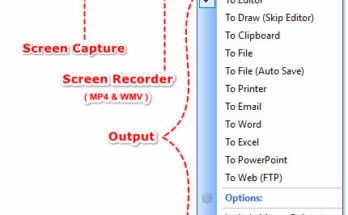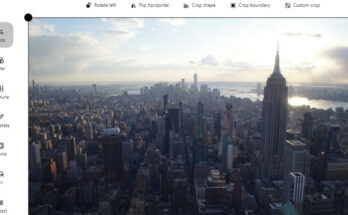
After the relentless horrors of Vista – an operating system so annoying that we came close to lobbing our PC into the canal in frustration – we’ve rather enjoyed our time with Windows 7, finding it to be stable, reliable and pleasant to use OS.
SP1 ahoy
Keen to build on its success, Microsoft has announced that the beta Windows 7 service pack 1 (SP1) will be shimmying out from their Redmond HQ at the end of July.
With most people updating their systems via automatic updates, service packs aren’t quite the big news they used to be, although they’re usually a good marker for a maturing product.
The numero uno Service Pack 1 for Windows 7 and Windows Server 2008 is set to provide more tools to cater for cloud computing, and here’s Bob Muglia, president of the company’s Server and Tools Division, to tell us more:
Our job, simply put, is to deliver what customers need to take advantage of cloud computing on their own terms.
Some vendors would have you believe that you must move everything to the cloud now and there is only one way to achieve cloud computing; don’t be misled and lose sight of the value of all the investments you have already made to enable the full promise of cloud computing.
Microsoft’s strategy is to deliver software, services and tools that enable customers to realize the benefits of a cloud-based model with the reliability and security of on-premises software.
Microsoft is unique in that no other solution vendor has the same level of experience and expertise in software and services. We are providing the most comprehensive set of choices available to customers.”
Product momentumisationification
Microsoft have also provided an overview of what they delightfully describe as their, “product momentum” supporting their, “commitment to delivering customers choice.” Read on for more:
Public beta of service pack 1 (SP1) for Windows Server 2008 R2 and Windows 7 coming by end of July. The new virtualization tools in SP1 will help Windows Server 2008 R2 users prepare for cloud computing, Remote FX provides rich 3-D graphical experience for remote users, and Dynamic Memory enables more control to adjust memory usage without sacrificing performance. The service pack also will include a series of incremental updates, previously delivered through Windows Update, for both Windows Server and Windows 7 users.
Windows Azure platform receives enhanced features. As part of its commitment to deliver the resources developers need to more easily build applications for the cloud, Microsoft announced an updated Windows Azure software development kit (SDK) with support for Microsoft .NET Framework 4, Visual Studio 2010 RTM support, and IntelliTrace support now available athttp://www.windowsazure.com. In addition, the Windows Azure Content Delivery Network moved from beta to a production service and is now generally available.
Updates to SQL Azure. Microsoft announced it will offer spatial data support and access to 50 GB of SQL Azure Database capacity, allowing for higher scalability, flexibility and easier management of applications and services. Further enhancements to management capabilities include the public preview of SQL Azure Data Sync Service, which provides more flexible control over where and how data is distributed and synced across multiple datacenters, and Microsoft SQL Server Web Manager, a lightweight and easy-to-use tool to help develop, deploy and manage data-driven applications on the cloud.
Windows Server AppFabric now available. Released to manufacturing today, Windows Server AppFabric simplifies the development and management of composite applications by providing improved speed, elastic scale and high availability through distributed caching capabilities and new tools. Customers with licenses for Windows Server 2008 and Windows Server 2008 R2 (Standard and Enterprise editions) can download Windows Server AppFabric at no additional cost.
Bing Maps announces new SDK. With today’s release of the Bing Map App Software Development Kit, developers can now create applications built on top of Bing Maps and hosted on Bing.com. By opening up the map app API, Microsoft is enabling developers to take mapping beyond point-to-point directions by providing a rich spatial canvas to visualize content, create dynamic mash-ups and help people complete tasks faster.
Unified Communications Group unveils features of Microsoft Communications Server “14” and Exchange Service Pack. Today, Microsoft disclosed the full feature set of its forthcoming unified communications platform, Communications Server “14,” which will be available later this year. Key new features in this release include expert search, Office document and application sharing, and one-click meeting access from Outlook, SharePoint and mobile phones, which contribute to the complete unified communications experience that connects people anytime from virtually anywhere. Microsoft also announced Microsoft Exchange Server 2010 SP1 beta is available today for customers to download.
[More]


